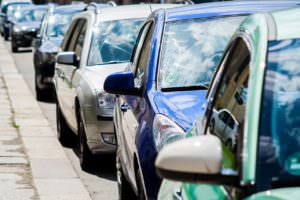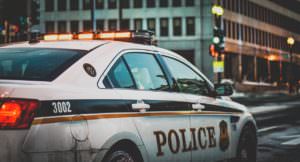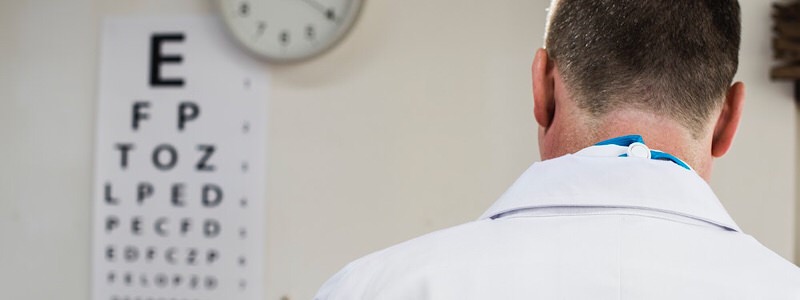 Being involved in a car accident is something that we all hope to avoid, but it can, unfortunately, happen to anyone. To be on the safe side, it’s best to be prepared in case you find yourself in such a bad situation.
Being involved in a car accident is something that we all hope to avoid, but it can, unfortunately, happen to anyone. To be on the safe side, it’s best to be prepared in case you find yourself in such a bad situation.
Do you know what to do if you get into a car accident in Oregon? Follow these pieces of advice, and you’ll be much better off.
Remain Calm
The first thing you should always do, no matter how serious the accident is, is to not panic. You or the people you care about could be injured, and you’ll need to be thinking clearly to help. Even without injuries, minor mistakes can cost a lot of money or legal trouble down the road.
Don’t Leave
This one is fairly obvious, but driving away from an accident is one of the worst things you can do. No matter how severe the accident or who’s to blame, you have to stop and assess the damage with anyone else involved. You can get into serious trouble if you don’t follow the appropriate procedures.
Find Out if Anyone is Injured
Checking on the health of everyone is the first action you should take after a car accident. If anyone is injured, getting them medical attention is the top priority.
Move Out of Traffic (In Non-Serious Accidents)
 In very serious accidents, or those in non-crowded areas, you may not have much choice but to leave your cars where they are. But, if you have a minor accident on a busy road, it’s usually best to move your vehicles to a safe area. If possible, take pictures before moving, but don’t risk your safety by remaining somewhere where other cars may hit you.
In very serious accidents, or those in non-crowded areas, you may not have much choice but to leave your cars where they are. But, if you have a minor accident on a busy road, it’s usually best to move your vehicles to a safe area. If possible, take pictures before moving, but don’t risk your safety by remaining somewhere where other cars may hit you.
Place Warnings Signs
To help keep yourself safe, you should set up flares, traffic cones, traffic triangles, or any other noticeable objects on the road behind where your cars are.
You should plan ahead for this. You can buy these at any automotive shop, and you should keep a selection inside your car to be prepared. At the same time, it’s wise to keep a first aid kid and some emergency clothes in case of inclement weather.
Inform the Police
 You’re required by law to inform the police about any accident you have. Also, it doesn’t matter who you believe is at fault, you should tell them everything with complete accuracy. They’re likely to find out the facts eventually, so any lies you tell could come back to haunt you.
You’re required by law to inform the police about any accident you have. Also, it doesn’t matter who you believe is at fault, you should tell them everything with complete accuracy. They’re likely to find out the facts eventually, so any lies you tell could come back to haunt you.
It’s also a good idea to record the names and badge numbers of any police officers that are at the scene of the accident. This can sometimes be helpful later on if there are any problems.
Call a Lawyer
If you’ve been injured or sustained serious damage to your car, you should absolutely call a lawyer immediately. There are certain actions that need to be taken, and many of them need to be done as soon as possible.
Even if it seems relatively minor, it’s a really good idea to consult with a lawyer to make sure you aren’t missing anything. A legal expert will be able to tell you if you are eligible for any benefits, and they’ll be able to prepare for any trouble you might face.
Exchange Insurance Information
Even if the police record the insurance information of the other people involved in the accident, make sure you get it, too. Insurance companies are notorious for trying to get out of paying, and you need to be able to tell them exactly who the other drivers were.
Also, make sure that all the documents match. If the registration or insurance of the car doesn’t match the name of the driver, record all of the different names and contact information.
Take Photos
Don’t ever rely on others (including the police) to send you photos after the accident. If you need to prove the truth about what happened, it’s best to take them yourself.
Don’t Admit to Anything
As already mentioned, you should be completely honest with the police. But, that doesn’t mean you have to admit to being at fault for anything. It’s natural to want to apologize in a traumatic situation, but there are many cases where you may think you’re the one who caused the accident, and the law doesn’t. Tell what happened, but don’t ever say you were responsible for the crash.
Look for Witnesses
Witnesses can be incredibly valuable after a car accident. They are normally unbiased, and they had a different view than anyone involved in the wreck. Record the names and contact details of anyone who saw what happened.
Talk to Your Doctor
If you have any pain or injuries, immediately seek medical attention. But, you may have suffered some form of injury even if you don’t feel it. Many issues take time before you’ll notice the symptoms, so it’s best to go get checked by a doctor as soon as possible after the accident.
This is extraordinarily important because as time goes on, it’s much harder to prove that the accident caused your health problems.
Don’t Be in a Hurry to Leave
It can be tempting to want to get away as soon as you can, but be patient to make sure you do everything necessary before leaving the scene of the accident.
You Don’t Have to Go Through This Alone
No matter how severe, car accidents are traumatic experiences. The good news is that with a quality lawyer, you have a caring expert by your side through the whole process. I’ve helped a ton of people through situations they hoped never to be in, and I understand how hard it is. But, please know that the sooner you contact me, the better legal assistance I can offer you.
Drive safely!


















